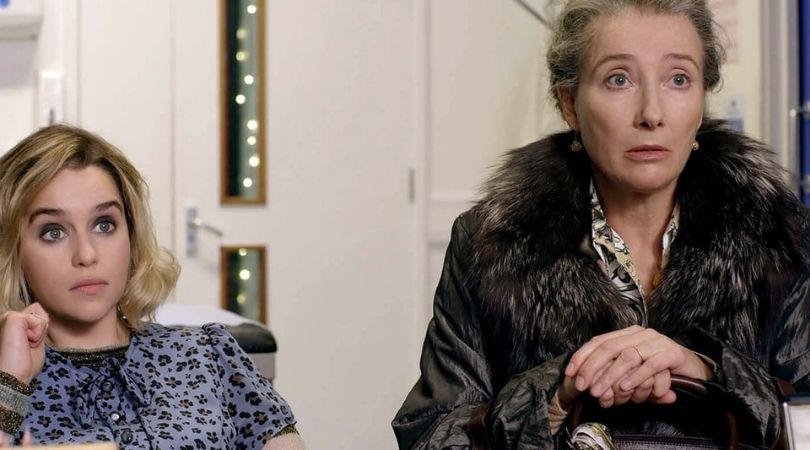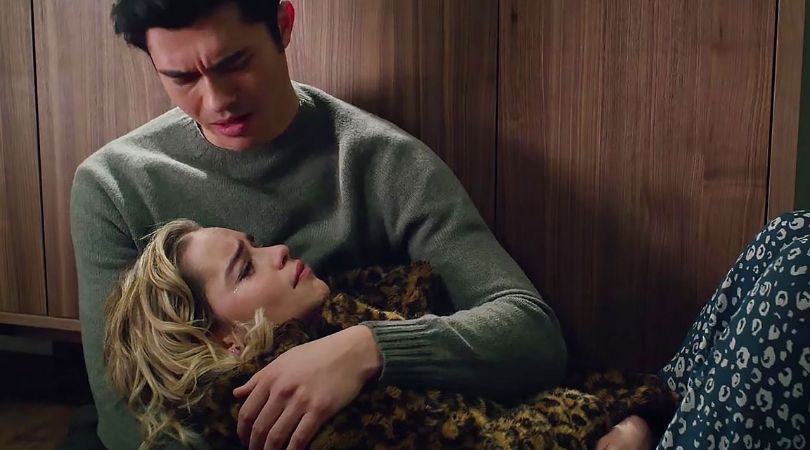The Christmas romantic comedy from Paul Feig, Last Christmas, stars Emilia Clarke as Kate, a woman who recently recovered from an illness by receiving a transplant. Instead of taking to her life the way she had been, which was apparently people-friendly and hardworking, she decided to pursue a path filled with destructive choices, inevitable rejection, and avoidance of her parents.
To put it simply, at the beginning of the film, Kate is a mess. However, as the story unfolds, we learn more about the mess, and it isn’t rooted in the tension with her mother, who needs her to be sick like we think. Instead, it’s about Kate struggling with who she is. I identify with her struggle to see herself beyond her illness as she learns how to define her identity.
While Kate tells everyone around her that she isn’t ill anymore as a way to get them to stop seeing her as someone in need of guarding and attention, she is simultaneously coping with the inability to see herself as healthy. Who is she now that she has a new organ that isn’t hers? Who is she now that she’s healthy?
This struggle of building an identity outside of your illness after you “get better” is a complicated one. Leaving treatment or diagnosis behind, or rather not using it to define you, is something that “getting better” makes you feel like you need to do.
What do you do when you lose what you defined yourself by?

If you’re “better” then, of course, you’re no longer “sick.” But that isn’t always the case, and realizing that is something that takes time. I am no longer bulimic, but I am someone who lives with that trigger sitting in the back of my brain. While I have a healthy relationship with food now, the edge of unhealthy is always there. I am better, but I don’t think I’ll ever be without it.
As much as Last Christmas is about a romance between Tom and Kate and Kate’s relationship with her mother and her friends, the film is ultimately about her identity, from exploring the shortening of her name from Katarina to Kate and her family’s status as immigrants to pushing herself away from her family, leaving them and thus leaving her illness behind.
To Kate, her mother is overbearing because she wants her to remain ill. Her mother liked the attention she got from Kate’s illness and wants to go back. As she keeps making this comment throughout the film, we learn that her issues run deep.
In one of the film’s more intense scenes, Kate lays in Tom’s arms after explaining how she received a transplant the previous year and then, all of a sudden, she wasn’t “special.” She maps out how she was special before her heart condition but then when she fell ill, the specialness moved to her illness and it made people take care of her and made her the focus. Kate defined herself by it and then she wasn’t sick. Then, she was left with her decisions and the loneliness that came with everyone turning their eyes elsewhere and you realize that Kate doesn’t know how to be better.
She binge drinks, takes a different guy back to whoever’s couch she’s sleeping on that night, and she skips the doctor. She embraces the opposite of who she was before her illness in order to try to figure out who she is, even it means destroying everything around her.
Last Christmas shows why choosing to “get better” is the hardest step in the process.

Outside of just sharing a name with Last Christmas’ main character, I deeply identify with Kate’s struggle to find who she is on the other side of her illness. Eating disorders don’t just affect your physical body or your mind, they ravage them both.
While they impact your health, burning the lining of your esophagus, making your bones brittle, exhausting your body, and more, they also warp how you view yourself. For many of those who suffer, you are your disorder. You define yourself by the calories, by your collar bones, and the image you hold in your mind of yourself distorts. I speak about this from my specific experience, but more importantly, I speak about this as someone who got better. But getting better wasn’t easy.
When your family pushes you into recovery, they don’t realize that the issue isn’t about just eating again. It’s about rebuilding how you identify yourself. This is the same for other illnesses and other ways we have grown to describe ourselves in life. It’s why there are so many movies and television shows that focus on women learning to define themselves outside of a relationship. But, there aren’t many that deal with people having to restructure their identity after an illness. Then came Last Christmas.
On the other side of recovery from an eating disorder, I was mad all the time. I was hyper. I was so focused on proving I was okay that I didn’t realize how much of my life I had begun to push away, the people I stopped talking to, the way I treated my mother like she wanted me to get better so she didn’t have to deal with me – the inverse of Kate’s situation. All of this compounded in bad choices that led to exhaustion, and then I realized that losing the thing that had defined my life for so long didn’t make me less me.
My eating disorder didn’t and doesn’t define me. I am me with and without it, and while getting better was scary, it was the best decision I made. While my anxiety and depression remain constant throughout my life, I’m no longer desperately clawing for the normalcy that others have defined.
Like Kate, discovering myself was everything. I didn’t need a Christmas love, but I did need to talk it out to realize my own worth without my illness. I needed to find out who I was when I wasn’t sick. And I like who I am now.
Last Christmas is streaming now on MAX (formerly HBO Max).







